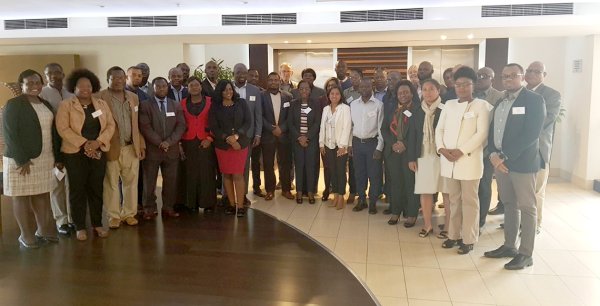WWARN is part of a new consortium tackling malaria drug resistance in South-East Africa
A new consortium MARC SE-Africa (Mitigating Antimalarial Resistance Consortium in Southern and East Africa) launches today, responding to a growing crisis in malaria, one of the greatest infectious challenges facing Africa.

Gains achieved in reducing the burden of malaria and advancing its elimination are now threatened by malaria parasites becoming resistant to the main group of drugs used to treat malaria, the artemisinins. Artemisinin-based combination treatments (ACTs) are the backbone of all currently recommended malaria treatments. The potential impact of widespread ACT resistance in Africa has been estimated at 16 million more malaria cases and nearly 80,000 additional malaria deaths annually. Protecting the efficacy of current first-line malaria treatments is now a top public health priority.
The four-year MARC SE-Africa project is designed to promote the translation of evidence of artemisinin and other drug resistance of public health significance to inform better malaria policy and practice before drug resistance increases the number of malaria cases and deaths. This consortium, led by University of Cape Town, will provide technical support to the eighteen countries of Southern and East Africa, the area historically first affected by drug resistant malaria.
"Reports in recent years of emerging resistance to artemisinin and its partner drugs initially in Asia, and now in Africa must be taken very seriously and as a matter of urgency. As researchers we know that collaboration is a proven way to fast-track better outcomes for patients and by working together, we should do better than in the past," said Professor Philippe Guérin, Director of the WorldWide Antimalarial Resistance Network (WWARN).
Having pioneered collaborative, global data sharing in resource-limited settings since 2009, WWARN, as part of the MARC-SE global consortium, will focus on engaging the research community and collating surveillance data by expanding the existing Clinical Trials Library and molecular marker surveyors in order to expedite the identification, collation, and mapping of regional antimalarial resistance data. WWARN will work with consortium members to collate individual participant data (IPD) to perform meta-analyses which will provide crucial scientific evidence needed to inform better malaria policy and practice in Southern and East Africa. WWARN will further plug knowledge gaps by expanding the molecular marker surveyors into a regional multi-marker resistance prevalence map.
UCT's Professor Karen I Barnes, who coordinates the MARC SE-Africa consortium, explains the importance of the project: "This consortium will provide technical support to facilitate the implementation of the World Health Organisation Strategy to respond to antimalarial drug resistance in Africa in our region. Working together we have the best chance of preventing a repetition of the devastating increase in malaria cases and deaths seen previously with chloroquine resistance." She has been working with national malaria programmes to establish such a regional network since 2019 (Figure 1), with these efforts interrupted by the COVID-19 pandemic.
Over the next 4 years, MARC SE-Africa will receive almost 4.2 million euros from the Global Health EDCTP3 Joint Undertaking established under the European Union research and innovation programme, Horizon Europe.
The University of Cape Town-led consortium includes (in alphabetical order): Infectious Diseases Research Collaboration, Karolinska Institutet, LINQ management GmbH, Liverpool School of Tropical Medicine and their Malawi-Liverpool-Wellcome Programme, Stichting Amsterdam Institute for Global Health and Development, Stiftelsen Magic Evidence Ecosystem, University of Melbourne, the University of Rwanda, and the WorldWide Antimalarial Resistance Network part of the Infectious Diseases Data Observatory.
About MARC-SE
MARC SE-Africa is a 48-month project funded by the Global Health EDCTP3 Joint Undertaking (GH EDCTP3 JU) that builds on the first and second European and Developing Countries Clinical Trials Partnership (EDCTP) programmes. This new joint undertaking is a partnership between the EU and the EDCTP Association, whose members are several European and African countries. EDCTP is now a focal point for European research activities, promoting coordinated action to maximise impact on poverty-related infectious diseases.
Learn more about MARC SE-Africa on the project website (https://www.marcse-africa.org).
